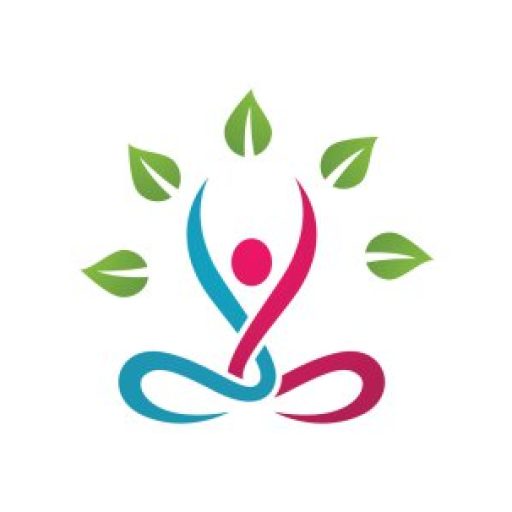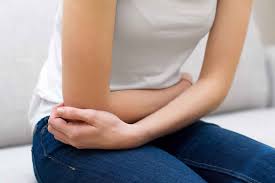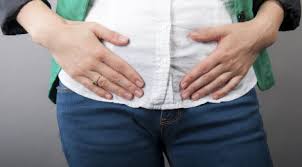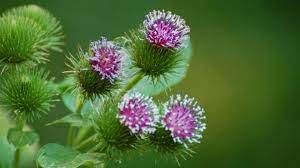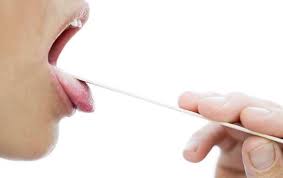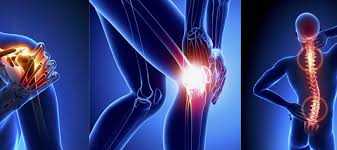Content of the Article
- What are the Symptoms of Cystitis?
- What are the Causes of Cystitis?
- What are the types of cystitis?
- Who is at Risk of Cystitis?
- How Is Cystitis Diagnosed?
- How Is Cystitis Treated?
- How to Prevent Cystitis?
- Interstitial Cystitis Symptoms, Causes and Natural Treatment Ways
- Interstitial Cystitis Signs and Symptoms
- Interstitial Cystitis Home Natural Treatment
Cystitisis inflammation of the bladder. Inflammation is where part of the body becomes irritated, red, or swollen.
In most cases, cause of cystitis urinary tract infection. When bacteria enter the bladder or urethra and begin to multiply urinary tract infection it occurs.
This can also happen with naturally occurring bacteria that become unbalanced in the body. These bacteria cause an infection and cause inflammation.
Cystitis it doesn't always come from an infection. For example, some medications and hygiene products can also cause inflammation.
Treatment of cystitis It depends on the underlying cause. Most cystitis the case is acute, that is, it occurs suddenly. Interstitial cystitis cases are chronic or long term.
Cystitis It can affect anyone, but it is most common in women.
What are the Symptoms of Cystitis?
Symptoms of cystitis It is as follows:
Frequent urge to urinate
- The urge to urinate after the bladder is emptied
Smelly urine
Low fever in combination with urinary tract infection
Pain during sexual intercourse
Pressure or a feeling of bladder fullness
Cramping in the abdominal or back area
If a bladder infection spreads to the kidneys, it can become a serious health problem. In addition to the symptoms listed above, kidney infection symptoms comprise:
- Nausea
- Vomiting
Pain in the back or sides
- Shivering
What are the Causes of Cystitis?
Type of cystitis It depends on the reason. Causes of cystitis It is as follows:
- Urinary tract infection
Taking certain medications
Exposure to radiation
Continuous catheter use
Irritating hygiene products
What are the types of cystitis?
Cystitiscan be acute or interstitial. Acute cystitis It is a case of cystitis that occurs suddenly. Interstitial cystitis (IC) is a chronic or long-term disease affecting multiple layers of bladder tissue. cystitis is the case.
There are a number of possible causes of both acute and interstitial cystitis. The cause of cystitisdetermines the genre. The following types of cystitisto you:
Bacterial cystitis
Bacterial cystitisIt occurs when bacteria enter the urethra or bladder and cause an infection. This can also occur when bacteria that normally grow in the body become out of balance. The infection causes inflammation in the bladder.
It is important to treat bladder infection. If the infection spreads to the kidneys, it can become a serious health problem.
Drug-induced cystitis
Some medications can cause the bladder to become inflamed. Medicines pass through the body and eventually leave the urinary system. Some medications can irritate the bladder as they leave the body.
For example, the chemotherapy drugs cyclophosphamide and ifosfamide cystitiscan cause e.
Radiation cystitis
Radiation therapy is used to kill cancer cells and shrink tumors, but it can also damage healthy cells and tissues. Radiation therapy in the pelvic area can cause inflammation of the bladder.
Foreign body cystitis
Using a catheter, a tube used to facilitate urine drainage from the bladder, can increase the risk of bacterial infection and damage tissues in the urinary tract. Both bacteria and damaged tissues can cause inflammation.
Chemical cystitis
Some hygiene products can irritate the bladder. CystitisProducts that can cause erosion include:
Spermicidal jellies
Use of a spermicide diaphragm
- Feminine hygiene sprays
Chemicals from the bubble bath
Cystitis associated with other conditions
Sustainable Development Goals (SDG), sometimes referred to as the cystitisoccurs as a symptom of other medical conditions such as:
Diabetes
- Kidney stone
HIV
Prostate enlargement
Spine injuries
Who is at Risk of Cystitis?
Cystitisis more common in women due to their shorter urethra. However, both men and women are at risk for this condition. Women are cystitis You may be at higher risk for:
Being sexually active
- Being pregnant
Using spermicide diaphragms
Being in the menopause period
- Using irritating personal hygiene products
Men who have an enlarged prostate in the bladder due to urinary retention cystitis may be at higher risk for Common risk factors for men and women include:
Recent urinary tract infection
Radiation therapy
Chemotherapy
Use of a catheter
Diabetes
- Kidney stone
HIV
Spine injuries
- Interference with urine flow
How Is Cystitis Diagnosed?
Diagnose cystitis There are a few different ways to do this. Doctor cause of cystitisAsks for a urine sample to identify and check for urinary tract infection. He or she may also perform cystoscopy or an imaging test to determine the cause of the symptoms.
Cystoscopy
In cystoscopy, the doctor examines the bladder with a thin tube attached to a camera and light. The doctor may use the cystoscope to take a biopsy of the bladder tissue, if needed. A biopsy is a small sample of tissue used for further testing.
Imaging test
Imaging tests are not usually required, but cystitis can help diagnose. An x-ray or ultrasound may indicate a structural problem or other, such as a tumor. causes of cystitisIt helps to exclude.
How Is Cystitis Treated?
Medicines used in the treatment of cystitis
Antibiotics bacterial cystitis It is a common treatment for. Interstitial cystitis can also be treated with medication. Medicine for interstitial cystitisdepends on the cause.
Operation
Cystitiscan be treated surgically, but will not be the doctor's first choice. It is more commonly used for chronic conditions. Sometimes surgery can repair a structural problem.
Home treatment for cystitis
Home care treatments can ease the discomfort. The following methods can be used:
- Applying heating pads to the abdomen or back
Pain relievers such as ibuprofen and acetaminophen
Cranberry juice or tablets
Drinking too much fluid
Wearing cotton underwear and loose clothing
Avoiding foods or drinks that you suspect are worsening symptoms.
How to Prevent Cystitis?
To prevent bacteria from spreading in the stool, women should clean from front to back after a bowel movement. It is necessary to clean the genital area gently.
Women should empty their bladders and drink water after sexual intercourse. Finally, products that irritate the area should be avoided.
Interstitial Cystitis Symptoms, Causes and Natural Treatment Ways
Interstitial cystitisIt is thought to affect 12% of adult women. This number is gradually increasing. This condition mainly affects the bladder and is more pronounced in women.
What is Interstitial Cystitis?
Interstitial cystitisis a difficult medical condition to diagnose. Painful bladder syndrome It is also called. Interstitial cystitis, It is a chronic problem of the bladder.
The bladder is the area responsible for holding urine after it has been filtered by the kidneys. When the bladder is full, the pelvic nerves signal the brain that it's time to urinate.
These signals interstitial cystitisin those who suffer from the skin, it becomes confused and causes pain or a feeling of pressure in the bladder and can sometimes cause pelvic pain. This condition affects women more than men.
Interstitial Cystitis Signs and Symptoms
Interstitial cystitis symptoms it usually varies from person to person. It can also flare up in response to common triggers such as menstruation, stress, and exercise.
Interstitial cystitis Common symptoms associated with:
Pain in the pelvic area or between the vagina and anus in women
Pain between the scrotum and anus in men
- An urgent and persistent need to urinate
Passing small amounts of urine frequently, saying about 60 times a day
Discomfort when the bladder is full and relief after urination
Pain during sexual interactions
Interstitial Cystitis Causes and Risk Factors
With interstitial cystitis There may be leakage in the epithelial layer of the bladder of individuals. This can cause toxic substances to enter the urine and aggravate symptoms.
Interstitial cystitis Other possible (but unproven) factors that may be responsible for its development include:
Autoimmune reaction
Allergy
- Infection
- Heredity - Family case history
Some factors risk of developing interstitial cystitis can increase:
Gender
Women are more at risk than men.
Hair color and skin tone
Having a lighter skin tone and red hair is associated with an increased risk of developing this disease.
Age
Interstitial cystitis The diagnosed patients are usually 30 years of age or older.
Chronic pain disorder
Interstitial Cystitis Home Natural Treatment
Carbonate
Add half a teaspoon of baking soda to a glass of water. Stir well and drink. Drink this mixture once every day when symptoms flare up.
Carbonate is alkaline. This alkalinity helps neutralize acidity in the body, so inflammation and other interstitial cystitis reduces symptoms.
Aloe vera
Drink a quarter cup of aloe vera juice every day. You can drink aloe vera juice once a day.
Aloe verahas healing properties. Contains naturally occurring mucopolysaccharides, which means interstitial cystitisit is effective in managing business. It does this by regenerating the defective mucosal surface of the bladder.
Vitamin D
Consume foods rich in vitamin D (especially vitamin D3), such as fatty fish, cheese, egg yolks, shrimp, and mushrooms. You can also take additional supplements for this vitamin after talking to your doctor.
Include the required amount of vitamin D in your daily diet.
The active form of vitamin D is known as calcitriol. Oral vitamin D3 intake, interstitial cystitis It has an anti-inflammatory effect that can reduce the symptoms.
Coconut Oil
A tablespoon daily extra virgin coconut oil Consume. You can also mix coconut oil with any essential oil and apply it topically on your lower abdomen. Do this 1 to 2 times a day.
Coconut oil has anti-inflammatory and analgesic properties that can help reduce bladder inflammation and pain.
Green tea
Add half a teaspoon of green tea to a cup of hot water. Let it steep for 5-7 minutes and strain. Drink it hot. Drink green tea twice a day for optimum benefits.
Green tea It is a powerful antioxidant and has important anti-inflammatory properties thanks to its polyphenols. It protects bladder cells from further oxidative damage and stress.
Ginger
Put a teaspoon of chopped ginger in a glass of water. After 5 to 7 minutes, strain. Drink ginger tea without cooling. You can drink ginger tea at least 2-3 times a day.
GingerThe active ingredient in is gingerol. This compound is anti-inflammatory and analgesic and therefore can help reduce bladder pain and inflammation.
Garlic
Chew two to three cloves of garlic a day. You can also add garlic to your meals. Consume garlic daily.
Garlicshows anti-inflammatory and protective effects to prevent bladder degeneration. Interstitial cystitis and is a great remedy for managing their symptoms.
Turmeric
Mix half a teaspoon of turmeric powder in a glass of hot water. Do not drink the mixture more than twice a day as needed. Do this when your symptoms start to show up.
TurmericThe main component of is curcumin. Curcumin, interstitial cystitis It is a powerful antioxidant with important anti-inflammatory properties that can help manage symptoms and prevent further oxidative damage to the bladder.
Marshmallow Root Tea
Take a medium jar and fill a quarter of it with marshmallow root. Add warm water until the rest of the jar is full. Leave for 4-12 hours. Strain the mixture and drink it. You can drink 2 glasses of marshmallow root tea a day.
The anti-inflammatory properties of marshmallow root can help relieve inflammation and pain in the bladder.
Rooibos Tea
Add a teaspoon of rooibos tea to a glass of water. Boil it in a saucepan. After boiling, strain. Once the tea has cooled down a bit, you can add some honey for added flavor. You can drink this tea twice a day.
Rooibos tea, interstitial cystitisIt has powerful antioxidant and anti-inflammatory activities that can help manage the blood and also prevent further damage to the bladder.
